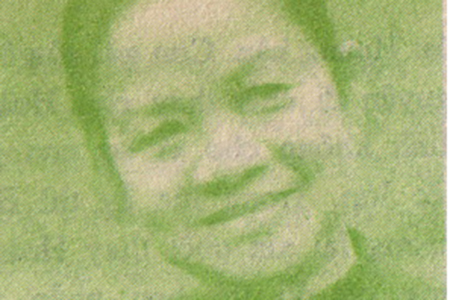Hoa Tam. During the 1940s, Buoi villagers often talked lovingly about her. Hoa Tam was the owner of the local tent theatre. Quang Tam Ban, erected in the Buoi Market Hanoi. The troupe played to a full audience every night as well as at Sunday matinees. Audiences could watch modem as well as traditional plays such as Truong Vien and Thi Kinh, the Goddess of Mercy. Although they knew these plays intimately, having memorized them, the audiences watched them repeatedly without ever growing bored. They were also fans of the theatre's beautiful, elegant owner, Hoa Tam. Her appearance was so youthful that they called her "Miss" even though she was already married.
Hoa Tam was born into a farming family in Kim Dong, Hung Yen Province. From the time she was little, she could sing many styles of music such as cheo (popular opera), tuong (classical opera), and cai luong (amateur musicals). When she was thirteen, she joined a troupe to develop her talent. A few years later as a young woman with a very special voice, she decided to learn from experienced artists and master cheo. At that time her friends included writers, painters, journalists, and poets. Hoa Tam's husband, Louis Aubourg, a rich and handsome man, was proud that he had defeated all his rivals, including mandarins and wealthy men.

Although Hoa Tam was admired for her beauty and talent, these traits brought her both good and bad fortune. She once said that her life was not a full moon, only a sliver of one. However, at the age of twenty-one, she was a star on the cheo stages of Hanoi, Hai Duong, Son Tay, Ha Dong, Bac Ninh, and Hung Yen. She was particularly famous for the roles of Xuy Van in the scene Xuy Van Feigns Madness in Kim Nham and of a tax officer's wife in Tuan Ty - Dao Hue. These characters seemed to have been created for her. Even today, when seeing them portrayed by other actresses people still remember Hoa Tam in the roles.
Hoa Tam was also very successful in the role of Thi Mau. Once, in a performance for a foreign audience, she was so powerful and magical in the part of the flirtatious young woman that something very strange happened. When her character became angry with the monk and threw down the drumstick (dui), it hit the wooden tocsin (mo) and hovered, spinning above it. Hovering in the way it did, the drumstick seemed to express the young character's sexual aspirations and her fate. The stunned audience was so impressed it applauded frantically. Such a feat has never been seen since. Unfortunately, there is no photograph capturing this moment, which both foreigners and Vietnamese described for years afterwards.
Hoa Tam's roles have inspired a new generation of actors, who studied her movements, acting techniques, and singing style, even down to the way she laughed. However, many have tried to imitate her without success. Hoa Tam was not only an inimitable actress but also a highly generous woman. When the capital was liberated in 1954, one of the theatre companies was in financial distress. Hoa Tam didn't hesitate to sell her belongings to help. She also contributed to the training of new actors and passed on to young artists her experience - everything from intricate movements like opening a fan to arranging costumes and headgear. Hoa Tam never lost her love for life. On her sick bed before she died she said: “I have a special bond with this life even though it has done me quite a few wrongs.”



